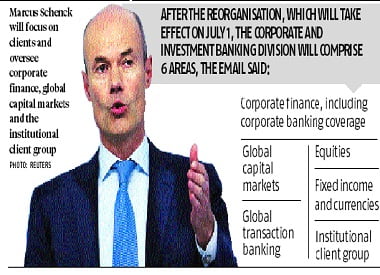
In order to address the issue of mis-selling and overcharging from investors in the capital market, the Securities and Exchange Board of India (Sebi) has proposed a cap on investment adviser fees and client segregation for entities providing both advisory and distribution services. Sebi has proposed capping investment advisory fees to 2.5% of the assets under advice (AuA) or a flat fee of ₹75,000 per year. The regulator has also proposed client segregation rather than business segregation for entities acting as both advisers and distributors.
The proposals were part of a consultation paper on Sebi-registered financial advisers (RIAs) that the market regulator unveiled on 15 January. The paper noted that there have been numerous complaints from customers about investment advisers offering assured returns, charging exorbitant fees and mis-selling products.
Client segregation
Sebi has proposed a radical answer to the vexed question of separating the distribution and advisory businesses. Under the existing rules, individual advisers cannot offer both distribution and advisory services, but corporate entities can offer both the services through separate departments. Sebi’s consultation paper adopts a new approach that will be applicable to both individual advisers and corporate entities. Neither can offer both distribution and advisory services to the same client. To prevent companies from circumventing the rule through group entities, the entire corporate group within the meaning of the Companies Act, 2013 will be considered as one entity for this purpose.
Existing clients who pay both distribution commissions and advisory fees will get the right to choose between the two service models. “The customer segregation rule can force providers to ask clients to redeem funds, thereby triggering tax and exit load. Alternatively, it can force providers to abandon their RIA services due to the cost of wholesale switching,” said Amol Joshi, founder, PlanRupee Investment Services. “Moreover different members of the same family will have different requirements. A person in their 40s and 50s may not understand direct plans and need a distributor. His millennial daughter might prefer an RIA. Why force families to choose?” he asked.
Investment advisers
Under the current rules, investment advisers are not allowed to provide distribution services. Sebi has proposed that they be allowed to do so but without charging customers. This bar on payments includes direct and indirect payments such as commissions. They will mandatorily have to sign an investment advisory agreement with clients which must have certain terms and conditions specified by Sebi.
The regulator has also proposed a cap on the fees charged by investment advisers at 2.5% of AuA. This includes all securities and investment products for which an adviser has rendered advice and/or provided implementation services. If the client opts for a fixed fee model, the annual fee will be capped at ₹75,000 per family. “The cap of 2.5% is a liberal cap and even exceeds the maximum 2.25% that can be charged by mutual funds. On the other hand, ₹75,000 is a low amount for large clients. The paper is impractical and I don’t see it being implemented in its current form,” said Joshi.
Finally, Sebi has suggested a hike in the net-worth requirement for individual financial advisers from ₹1 lakh to ₹10 lakh. For non-individual financial advisers, the net worth has been increased from ₹25 lakh to ₹50 lakh. The investment adviser and principal officer must also have post-graduate qualifications in finance, economics or related subjects. They must also have at least five years of experience. Existing entities need to meet the net-worth and qualification criteria within three years, Sebi has proposed. In addition, advisers must maintain records for five years and must get themselves re-certified on the expiry of their existing certifications.
[“source=livemint”]

